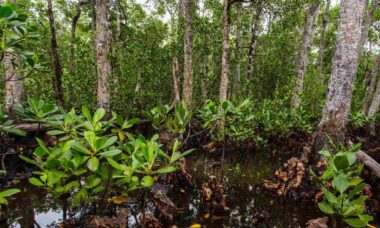Friday 19th of July
Investing in our grid is a priority for Australia, says a coalition of organisations representing farming families, electricians, regional communities and environmental and climate advocacy groups.
The Alliance was announced today as the Energy and Climate Change Ministerial Council met in Melbourne.
Members of the Alliance support urgent investment in major new grid infrastructure and upgrades to existing transmission lines which are needed to replace ageing coal plants with cheaper renewable energy sources and to put downward pressure on energy bills as the war in Ukraine continues to keep prices high.
The Alliance released a guide to kick off the collaboration, detailing why investment in Australia’s grid is needed for reasons ranging from household energy bills to energy security, and a range of principles for building Australia’s future grid successfully.
It follows the release of new modelling by energy consultancy Nexa Advisory earlier this week which found continued transmission delays are driving up consumer electricity bills for households and businesses, threatening reliability and risking emissions reduction targets. Nexa Advisory also led the formulation of the Alliance.
Nexa Advisory CEO Stephanie Bashir said: “Our research is about the here and now and getting the transition away from coal done in as orderly a way as possible, so that it does not cost Australian families and businesses their financial future. Transmission is the missing link. The delays in transmission mean families and businesses will pay a lot more on their electricity bills. The Alliance we have set up plays an important role in bridging the gap on community understanding and acceptance of grid upgrades from a range of organisations which is critical to the shift to renewables.”
Electrical Trades Union National Secretary Michael Wright said: “Expanding the grid is critical to delivering a fair and fast energy transition. Transmission projects need to be properly coordinated and have social license opportunities as a built-in feature from the start. Fundamental to delivering that social license will be making sure these projects deliver regional communities with access to meaningful training, high quality local apprenticeships, and well-paid secure jobs.”
Farmers for Climate Action CEO Natalie Collard said: “Farm income from wind and solar is both lucrative and constant for farmers that choose to host them, and provides farming families drought-proof income. Farming communities need to be respected, consulted and genuinely rewarded for hosting transmission and the vital role they play in Australia’s shift to clean energy.”
RE-Alliance National Director Andrew Bray said: “Regional communities deserve to benefit from Australia’s shift to renewable energy, but without upgrades to our grid those benefits won’t flow. Governments and industry need to support regional communities to be able to engage more directly in the changes that are happening to them - when community influence over decision-making is well reflected and respected, lasting legacies for local communities can be created.”
Beyond Zero Emissions CEO Heidi Lee said: “Renewable energy like solar, wind and batteries are crucial to get clean, affordable energy to our homes, businesses, factories and farms. Our Supergrid research shows how important transmission infrastructure is to enable the benefits of the energy transition to flow to the communities most affected by the shift. This important guide highlights the principles for good transmission design, so that we’re benefiting nature and communities as we build our future.”
Australian Conservation Foundation CEO Kelly O’Shanassy said: “To combat climate change Australia needs big new renewable energy projects and transmission lines that connect solar and wind farms to the grid. The roll out of renewable energy infrastructure can happen while looking after our unique plants and animals, with every project assessed for its environmental impact. Australia’s future is renewable, powered by energy that’s good for people and the places and wildlife they love.”
Nature Conservation Council of NSW CEO Jacqui Mumford said: “For nature to survive and thrive, we need a safe climate and renewable energy and transmission is key. We must protect high value biodiversity and restore nature as we transform our energy system for the better.”
Environment Victoria CEO Jono La Nauze said: “Australia needs to build transmission so we can connect renewables and move on from fossil fuels. This new guide explains what is happening, why, and how it can be done in a way that protects the environment and addresses the interests of local communities and First Nations.”
World Wide Fund for Nature - Australia CEO Dermot O’Gorman said: “Jointly solving the nature crisis, energy crisis and climate crisis is critical. To achieve the emissions reductions needed to reduce the impacts of climate change on biodiversity, we need lots of large-scale, clean energy infrastructure. For Australia to realise its ambitions to become a renewable energy superpower we need to see an acceleration of the build out of our grid in a way that is good for regional communities and for nature”
- ENDS -
For media inquiries and interviews please contact:
Sean Kennedy
0447 121 378
Rebecca Gredley
0484 008 095
About the Alliance: A coalition of the following organisations have formed an Alliance, supporting urgent investment in major new grid infrastructure and upgrades to existing transmission lines which are needed to replace ageing coal plants with renewable energy sources.
The Alliance includes:
-
Electrical Trades Union
-
Farmers for Climate Action
-
RE-Alliance
-
Beyond Zero Emissions
-
Australian Conservation Foundation
-
Climate Council
-
Nature Conservation Council of NSW
-
Environment Victoria
-
World Wide Fund for Nature - Australia
-
Nexa Advisory
Contact details:
Sean Kennedy
0447 121 378


